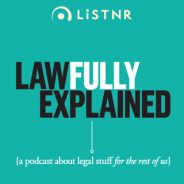News
Lawfully Explained – Starting a Business
The Law Institute of Victoria has partnered with the Law Society of NSW to create professionally produced sponsored podcasts. “Lawfully Explained” is a series of 16 episodes tackling bread-and-butter topics, common in everyday life, with which many people grapple.
As a lawyer and mediator, also having had the benefit of 14 years’ experience owning 5 successful hospitality businesses, I was delighted to receive an invitation from the Law Institute of Victoria to be interviewed on the topic: “Starting a business: What can possibly go wrong?” The podcast may assist existing small business owners as well those intending to become small business owners.
My podcast interview can be accessed by clicking HERE
#smallbusinessowner
#smallbusiness
#restaurants
#restaurantindustry
#cafes
#podcast
Are forceful mediators effective?
Rather than seeking out a robust mediator it’s probably of greater benefit to find a mediator with good people skills.
We frequently hear lawyers voice the need for a strong (or forceful) mediator for their dispute. What kind of qualities do lawyers expect in a “strong mediator”? Is a strong mediator expected to make the parties tremble? Or is it someone who is able to “bang heads together” or who knows the law or can evaluate who has the best case and tell the parties so. Or is it a tough negotiator or someone who has little regard for the classical models of mediation but can accomplish a settlement – or someone who is just simply a good mediator?
by Jonathan Kaplan – 01 Oct 2018 (Law Institute Journal)
Early mediation of TFM disputes
– and the challenges facing lawyers and mediators
As a mediator I have in the past been involved in several Testator Family Maintenance (“TFM”) disputes so I thought that it might be helpful to share some observations in the hope that this article might assist in tackling mediations of that kind.
Lawyers and mediators will no doubt be aware of the subtle, and sometimes not so subtle, differences between a commercial dispute and a TFM dispute, the latter, not unlike a matrimonial dispute, requiring some special skills.
Extended powers for the Victorian Small Business Commissioner
The Small Business Commissioner Act 2003 (Act) has been amended by the Small Business Commissioner Amendment Act 2014, with changes operational from 1 May 2014.
Of particular interest are the changes relating to the increased powers of the Victorian Small Business Commissioner (Commissioner) which impact upon and broaden the matters which it will now be able to handle.
Amongst other amendments, Section 5(2)(c) of the Small Business Commissioner Act 2003now provides that the Commissioner has the following functions:
“(c) to receive and investigate complaints by small businesses regarding unfair market practices or commercial dealings, and provide alternative dispute resolution between the parties involved in the complaint;”
Arguably there was always some debate over what “unfair market practices” covered, and the Commissioner has always been cautious in interpreting the ambit of that phrase. Those concerns have now been placed beyond doubt by the amendment, which now also incorporates “commercial dealings”.
This would now seem to include the capability of the Commissioner to investigate virtually any complaint touching upon the operation of a small business, which could even include commercial debt issues.
Whereas previously the power of the Commissioner was limited to mediation, that power has now been extended to include all forms of alternative dispute resolution, namely, conciliation, arbitration, assisted negotiation or facilitated meetings.
In relation to another amendment the Minister for Small Business, Mr Russell Northe noted in a recent press release: “The Bill extends the Commissioner’s jurisdiction to resolve disputes between small businesses and local councils, state government departments and agencies as well as more broadly covering commercial dealings and not just unfair market practices”.
The changes will no doubt be welcomed by small business as the door has now been opened wider to use a relatively inexpensive forum (currently $195 per party) where attempts can be made to resolve disputes fairly quickly (up to now by mediation) and before having to commence expensive, time-consuming and stressful litigation.
In the 2012-2013 at least 80% of matters heard at the Office of the Victorian Small Business Commissioner (VSBC) were resolved. There is now every good reason for small business to use that facility.
Jonathan Kaplan is an Accredited Specialist in Mediation and is on the panel of mediators of the VSBC.
Sale of Business
During December 2013 the Federal Government advised that it intended to remove the current GST free treatment for the sale of a going concern (and farm land) “during 2014”. The intention is to provide a “reverse charge” arrangement.
The reverse charge mechanism provides that the parties will be able to agree for the purchaser to be responsible for payment of GST on the sale and purchase of businesses as a going concern as if it were the vendor, allowing the purchaser to claim an input tax credit in the same period, if it is entitled to do so. Should the parties not agree, the vendor will need to account for GST in the usual way. It is anticipated that the impact on the purchaser under the reverse charge procedure will be neutral as it will be entitled to an input tax credit for the GST paid at the same time as the GST is payable, requiring no payment.
The qualification for the reverse charge mechanism is that:
- the test for a going concern will need to be satisfied (it is understood that the test will berelaxed requiring the supplier to only supply “substantially” all things necessary for the going concern); and
- the purchaser must be registered or required to be registered for GST
Unless these criteria are satisfied the reverse charge mechanism will not be available and the vendor will be liable for any GST.
It is necessary to highlight these potential changes because where contracts for the sale of a business are prepared consideration should be given to including a special condition in the contracts to cover the possibility of changes becoming effective before the settlement date.
The advice and information contained in this news blog is of a general nature only and is not intended to constitute or replace professional advice.
Website Launched
Jonathan Kaplan, Lawyer and Mediator, has launched his new website designed by 4Cubed Web Design.



